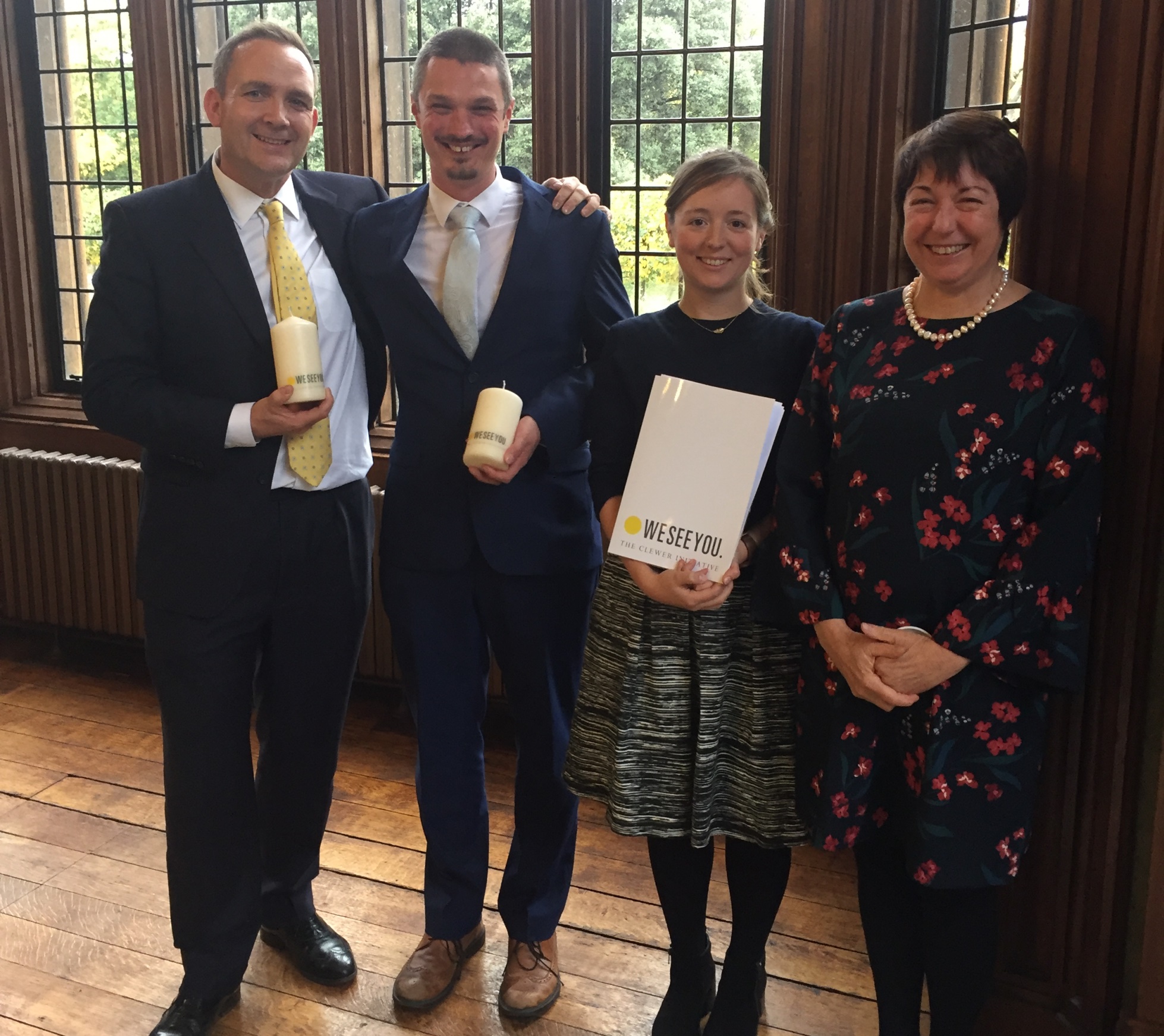
The Diocese of Lichfield is at the centre of a project aimed at mobilising the Church of Englands 12,000 parishes in the battle to eradicate modern slavery.
The Prime Minister and the Archbishop of Canterbury have given their backing to the launch of Clewer Initiative, a three-year programme to help the Church of Englands 42 dioceses work to support victims of modern slavery and identify the signs of exploitation in their local communities.
The Diocese of Lichfield is one of 11 dioceses who are signed up to the initiative with churches in Wolverhampton and the Black Country already engaged in the fight against modern slavery.
Transforming Communities Together, the Diocese of Lichfields joint venture with Church Urban Fund, is a core member of the Wolverhampton Anti-Slavery Partnership. Their involvement has led to increased collaboration between the church, police and statutory agencies. They work together to raise awareness of modern slavery, support victims and share intelligence. As a result churches in Wolverhampton have been recruited to be on standby to act as reception centres for rescued victims.
David Primrose, the Diocese of Lichfields Director of Transforming Communities, said: When churches are close to the ground, and listening to their local communities, then with basic information we can spot signs of possible trafficking and alert the appropriate authorities.
The project was being launched at Lambeth Palace at an event attended by representatives from Church of England dioceses and other denominations, along with MPs and charities involved in work to combat modern slavery.
In a statement of support for the launch, Mrs May said: Modern slavery is a barbaric crime which destroys the lives of some of the most vulnerable in our society. I value the work that the Clewer Initiative will be doing to enable the Church of England dioceses and wider church networks to develop strategies to tackle modem slavery.
In particular, I welcome the focus on engaging with local communities to help them to spot the signs of modem slavery.
We need to shine a light on this hidden crime and to encourage more victims to come forward so that we can provide them with the support they need.
Tackling modern slavery is one of my priorities as Prime Minister, and as Home Secretary I was pleased to introduce the Modern Slavery Act 2015, giving law enforcement new tools to pursue criminals and increase the support available for victims.
However, the Government cannot tackle this problem alone and this is why the efforts of organisations and groups such as the Clewer Initiative are so important.

Work is already under way in dioceses with training and information sessions on how to provide support and identify victims of labour exploitation in areas from the construction and property sector to hand car washes in British cities and shipping.
Bath and Wells, Chester, Derby, Durham, Guildford, Lichfield, Liverpool, Portsmouth, Southwark, Rochester, and Southwell and Nottingham dioceses are already signed up, with a further 16 dioceses due to participate later this year.
In Derby, the diocese has become a key member of the Derby and Derbyshire Modern Slavery Partnership, uniting with police and social services working to help victims.
In a video message, The Archbishop of Canterbury, Justin Welby, encouraged churches to act as eyes and ears in local communities to identify victims.
He said: Jesus came saying that he proclaimed freedom for captives. Freedom is something that we take for granted, but it is the gift of God, it is the purpose of God. Those who purposefully constrain, confine and traffick and enslave people will face the judgement of God for their terrible sins.
Yet even more serious is when we choose not to see: when as it were we put on our own blindfolds and dont see those around us who are held in slavery, oppressed, trafficked, in other peoples power.
But we can change it - we can change it so easily, so quickly. We can set people free, set our society and nation free from the scourge of slavery simply by removing our blindfolds and acting on what we see.
Kevin Hyland, the Independent Anti-Slavery Commissioner, said: Faith groups have influence, insight and rare avenues into the community; they are therefore a powerful tool in the fight against modern slavery.
The Church of England has acted on this unique ability by launching The Clewer Initiative, which adds backbone to the churchs anti-slavery approach. Clewer offers important knowledge to leaders of the Church, parish members and the public.
By informing those who are in a position to identify and support victims of this brutal crime, I am confident that the church is living up to its potential in defending the oppressed and overcoming injustice.
The Bishop of Derby, Dr Alastair Redfern, who chairs the Independent Anti-Slavery Commissioners Advisory Panel, said: Modern slavery is present in nearly every community in England and will continue to flourish if we remain indifferent to it.
Churches can provide a space to gather of goodness and grace, with an open agenda where different groups can meet to discuss how they work together to support victims, and to improve efforts for rescue and prevention.
We can also act as eyes and ears in our communities to help identify victims. Our work in the Clewer Initiative will build on the passion of churches to be with people, to contribute to more effective structures, and to go the extra mile for the sake of those who are suffering.
Photo caption (top), from left to right: Charles Reed, Project Manager, The Clewer Initiative, and the Foreign Affairs adviser for the Archishops' Council; James Henderson, Development Worker, Transforming Communities Together; Caroline Barnard, Communications Officer, The Clewer Initiative, and Caroline Virgo, Project Officer, The Clewer Initiative.